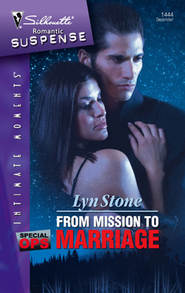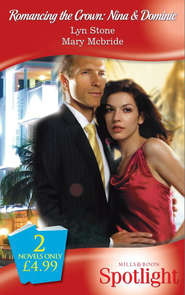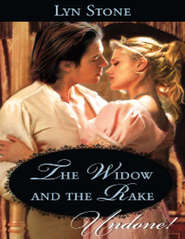По всем вопросам обращайтесь на: info@litportal.ru
(©) 2003-2025.
✖
Bride Of Trouville
Настройки чтения
Размер шрифта
Высота строк
Поля
Anne cast about for a reason why Robert had not joined them at board. The comte must wonder at it since he men tioned him again. “Robert meant no disrespect to you this eve, my lord. ’Tis only that he is very shy of strangers. And not feeling well. I shall speak to him upon returning to my rooms.”
“He sleeps by you and your women, my lady? A lad of ten?”
Anne shook her head as though she shared his amusement. “Of course not! He did reside in the lord’s chamber, as was his right. But now that you have come, I ordered his things removed to my anteroom.” She lowered her voice as though to share a secret. “Robert believes he is to sleep there as guard to me while we house our unfamiliar guests.” She laughed lightly to insure that he appreciated the small jest and did not take offense.
“How thoughtful you are of a young man’s pride,” he said. His face softened and Anne had to stifle a sigh. The very looks of the man made a woman weak at the knees. And the cause of it had little to do with fear. She truly must be wary of her own reactions to him. This was her first dealing with a man who attracted her. She had never before met one.
Once they were wed, Anne knew she dared not refuse him his rights. At the back of her mind, she even wondered if it might not be quite tolerable. Tolerable or not, she must please him, of course, and send him away contented. The thought of that necessity did not trouble her nearly as much as it should.
She must see that no occasion arose while he was here to prick his temper. A joint of meat underdone, a cup of wine leaning to vinegar, a kitchen drab who screamed at his rough sporting. The comte would react no differently in those circumstances than had her father or MacBain. But the fact that she only had to keep this one happy for less than three days, comforted her immeasurably. She could do that.
Anne cleared her throat and raised her. chin. “Day after tomorrow, then, and we shall marry so that you may be off to the coast the next mom. But I would you told my uncle yourself, my lord. He may think I am behind this rushing to wed.”
The comte laughed aloud and Anne blushed. She realized he must think she had just admitted to eagerness.
“I shall assure him it is I who would put paid to the deal! And I do thank you for considering my need to leave you so suddenly after our wedding, Anne. I may use your familiar name, may I not?”
He smiled that charming smile of his again, and reached out to touch her face with one long finger. Anne stiffened at the impertinence, and then made herself relax. He was her betrothed now, after all. She must allow touching. And indeed, it did feel rather nice.
“You may call me as you wish, my lord.”
“A saint’s name seems appropriate for so kind a lady. My Christian name is Edouard, should you care to use it. I wish that you would.” He spoke very tenderly as he said the words. Oh, a practiced charmer, this one, but the sweetest fruit could hide the most rotten of cores. There was a known fact.
“Edouard.” She allowed a subtle promise of pleasure to enter her voice. “Yours is a strong name. It means protector , does it not?”
He nodded once. Then he crossed his arms over his wide chest and regarded her as though considering something further. “I have decided ours will be a love match,” he said in that determined way of his.
“Oh, have you now?” Anne replied, laughing merrily in spite of herself. This unexpected tease of his delighted her. The man seemed perpetually amused at life in general and she liked that. Though he wore a serious look at times, as he did now, Anne thought he used it only to enhance his dry witticisms.
“Yes, that would be best, I believe.”
She sobered a little, determined to match his worldly nonchalance. “Ah. Well, that would explain our day-long betrothal and hasty marriage, should anyone care to question it.”
He nodded and shook a forefinger at her. “That, too! Good thinking. But no, I mean that you should love me. Sincerely.”
Anne bit her lips together, trying to stifle any further laughter. She cleared her throat and took a deep breath before speaking. “Love you. I see. An unusual idea. Why on earth would you want me to do that, I wonder?”
The comte shrugged and held out his hands palms up. “I think it would bode well for our happiness. Would you rather hate me?”
She swept past him to pace the room, uncertain what to say next This sort of exchange was new to her. “Well, of course I would not hate you! But be reasonable, my lord—Edouard—I hardly know you yet! Are you so imminently lovable, that you assume I will—”
“Oh, I shall be quite lovable,” he interrupted with a sensuous half smile. “Though some might argue the fact, I do know how to be.”
She did laugh then. “I daresay you do! What of me, then? Shall you love me as well? How do you know that I haven’t the blackest heart in Christendom, hmm?”
He grinned full out and raised his brows. “Because I know the owner of that particular heart, my dearest, and she is not you! And to answer your question, yes, I shall love you.”
Anne shook her head and rolled her eyes. “Well, love or nay, we’ll not lack for laughter, will we! What a notion, to wed for love. You do not strike me as particularly sentimental. Tell me, when did you make this decision, to love and be loved? And by a wife, of all people?”
He walked to the solar window and looked out, his back to her. “I suppose I should say it was the moment I beheld your sweet person. But, in truth, I have thought on it for years. Would it not be unique?”
That it would, Anne admitted. But it would hardly matter one way or the other, if the two people concerned were living apart in different countries. Then again, that might be the only way such a love would survive. That must be his reasoning as well.
It did occur to her that he might have put forth this offer of love to keep her faithful to him while he lived away from her. On that count, he need not worry in the least. She had no intention of engaging the attentions of any other man.
“You are one who truly believes in love, then?” Though she asked the question playfully, Anne really wanted to know his thoughts on it, for she did not think the emotion existed between men and women, other than in songs and poems. It certainly had not existed within the realm of her experience.
“Absolutely, and without question,” he answered readily, as he turned from the window. “I do know that many caution against combining love with marriage, but I have endured two marriages without it, and—”
“And I have, one,” she added, interrupting him. “But if you never knew love, when did you decide yourself capable of loving?”
“When I looked upon the face of my son after his birth. Did you not love yours?”
“Aye, of course, above everything! But that is not the same thing, surely! Loving a child is not the same.”
“Not at all the same,” he agreed. “But it does prove that a deeper feeling, that a caring for someone else more than oneself is entirely possible. I would like to feel that for a woman. For you. If you could return the favor and love me, likewise.” He brushed a hand over her cheek and she could not resist leaning into the caress.
Then she looked up at him. “I think love is not given upon conditions such as that, my lord. One either loves, or one does not.”
He tapped her nose with one finger. “We will make our own rules, you and L No unrequited love for us. You will love me, and I shall love you, all unreserved. I have decided.”
The man was a little mad, or else he engaged in all of this foolery to make her laugh and lighten this cursory proposal of his.
That sparkle of amusement in his eyes at the moment told her which it was. He was showing her the way of things within his exalted circle of acquaintances, no doubt. Country-bred she might be, but she had heard tales aplenty of how the more worldly nobles behaved. Bantering about love and such was considered a right wondrous pastime at court, so the traveling bards proclaimed. It had been so since the time of Queen Eleanor.
What did it matter? He could prate on about it all he wanted. ’Twas pleasant enough debate, after all, and highly entertaining. Once he returned to France, he could regale all his friends at the court with tales of how smoothly he had wooed and won his Scottish wife, and then left her longing for him. What did she care, so long as he departed soon and let her be?
If he wanted games for the two days he abided here, she would play. “Love, it is, then!” she said with her most elegant curtsy.
“Shall we go and share our happy news with the others?” he asked.
“With all haste,” Anne agreed.
He placed her palm on his arm as they returned to the hall. And she smiled for all she was worth. Not for a sure place in paradise would she allow her Uncle Dairmid to think she had bowed to his threats out of fear, even though she had. Men pounced on fear, she knew that. “This is my choice,” her look told her uncle as clearly as words could have done.
The trouble was, that in Dairmid Hume’s sublime fit of joy and copious felicitations, he did not seem to care one way or the other whose choice it was.
Anne consoled herself that she had gained much more by this arrangement than her uncle. She would have a husband in absentia, no further dealings with Dairmid Hume as a guardian, and her son would remain with her. Aye, everything about the situation suited her at the moment. She could not have hoped for more.
Now all she had to do was to keep Rob away from her uncle and the comte until they quit Baincroft and returned to France. Assuming that Robert would cooperate.
That worry alone threatened her hard-won, and well-practiced composure. Her lad had a mind of his own and more pride than was practical.
The next morning, Edouard woke in a happier mood than his usual. Sun streamed in through the arched window, its warmth mellowing the breeze that accompanied it. Even the weather welcomed him to this place. If he were superstitious, he might consider it a good omen. But his cynical nature warned him that Scotland’s weather was notoriously fickle, and so might be the lady. For now, he would give her the benefit of the doubt. Once wed, he would give her good cause to remain sunny, Edouard thought with a wry smile.
Anne of Baincroft did not strike him as a guilt-riddled girl obsessed with the myth of original sin as Henri’s mother had been. Nor did she exhibit the hesitancy about marriage that his second wife had shown. If Anne loved another man as Helvise had done, she certainly concealed the fact well. Her words, expressions, and attitude indicated that she was exactly what she appeared to be, a bright and beautiful widow who welcomed a very advantageous match.
Such natural beauty and grace proved more than he had hoped for at the outset. Her laughter was like sweet music. And her enthusiasm for a short betrothal was definitely an added boon.











